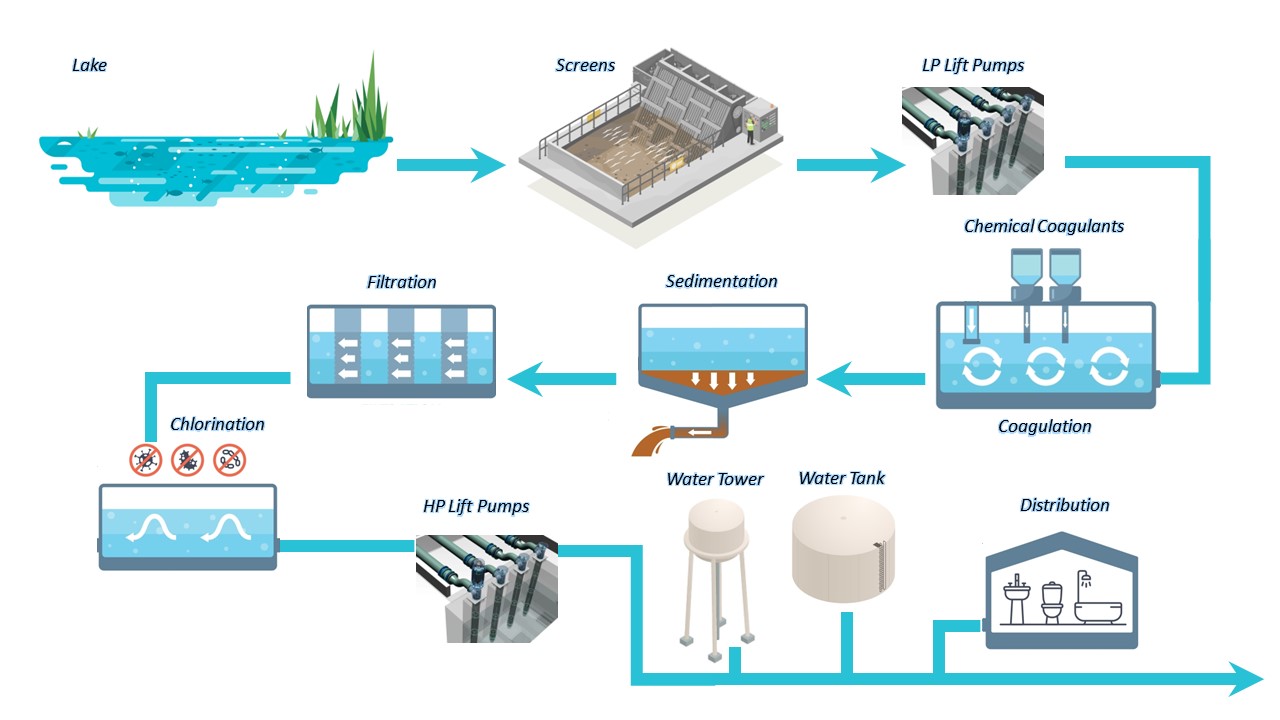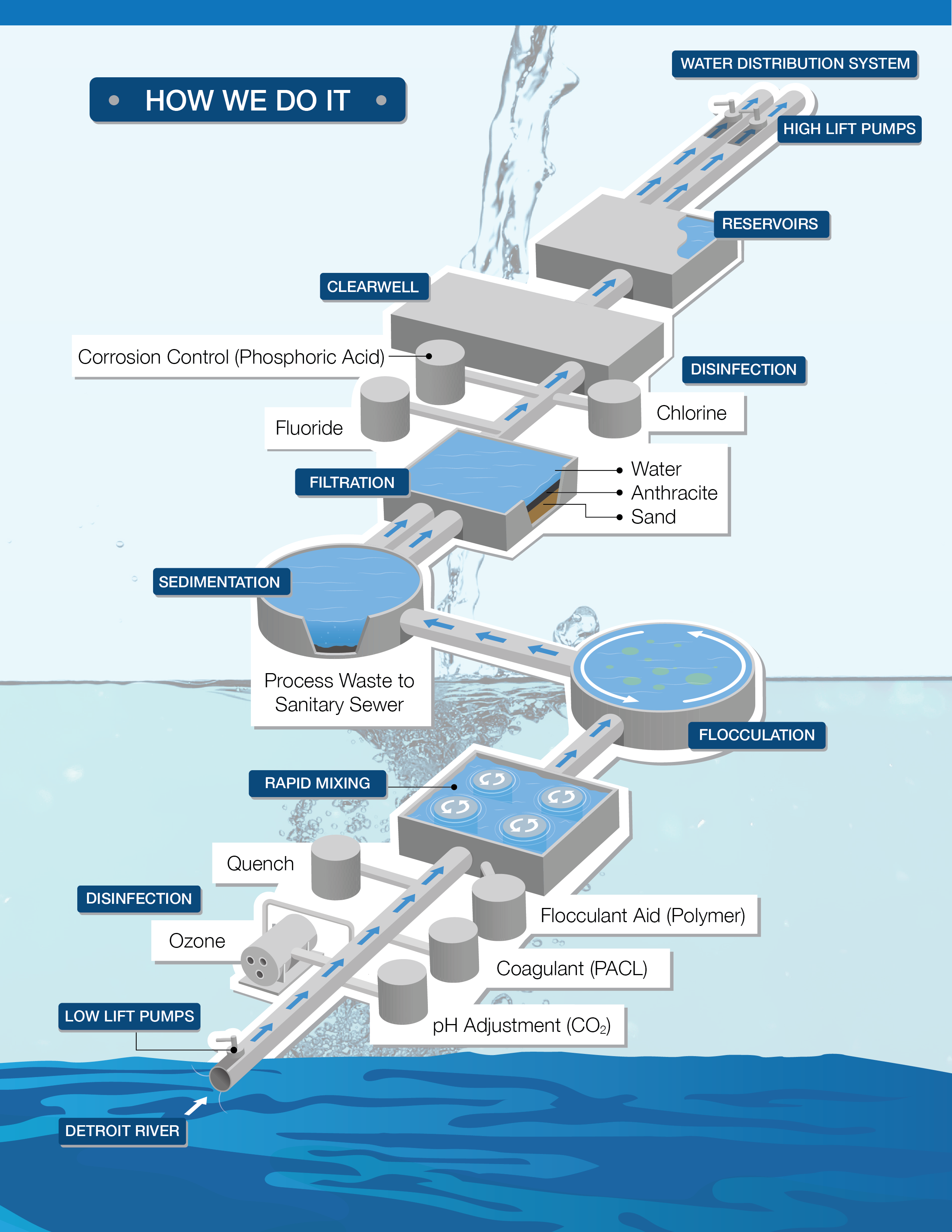Water Technology Startups: Safeguarding Capital and Best Practices for Success
Wiki Article
Exploring Water Technology Startups: Exactly How They Transform Sustainable Solutions
Water Technology start-ups are emerging as critical players in the quest for lasting services to worldwide water issues. These firms leverage cutting-edge technologies to boost water effectiveness and management. Their contributions attend to pushing difficulties such as deficiency and contamination. Despite their capacity, they encounter numerous obstacles that could impact their success. Understanding these dynamics sheds light on the future of water sustainability and the duty these start-ups might play in shaping it.The Significance of Water Technology in Today's Globe
As worldwide water shortage magnifies, the relevance of water Technology becomes significantly noticeable. Water Technology plays an essential duty in dealing with the challenges posed by boosting and decreasing fresh water resources demand. It encompasses a broad array of technologies, including sophisticated filtration systems, wastewater therapy modern technologies, and wise irrigation remedies. These improvements not just enhance the efficiency of water usage but also advertise lasting methods across different sectors, consisting of agriculture, industry, and metropolitan advancement.The value of water Technology expands past source administration. It cultivates durability versus environment change effects, such as dry spells and floodings, by providing adaptive remedies for water preservation and monitoring. Additionally, it supports public wellness by ensuring accessibility to risk-free and clean alcohol consumption water. As the world deals with growing water-related obstacles, the assimilation of cutting-edge water innovations is necessary for fostering lasting development and protecting water schedule for future generations.
Cutting-edge Solutions From Water Tech Startups
While traditional strategies to water management have actually offered their objective, a new age of water tech start-ups is revolutionizing the sector with innovative services (Water Technology Startups). These business take advantage of advanced innovations to resolve pushing water problems, such as shortage, contamination, and ineffective circulation. Several startups use artificial intelligence and machine discovering to enhance water usage and forecast demand, resulting in more lasting practicesAdditionally, a number of firms focus on developing advanced purification systems that eliminate toxins and make water safe for consumption. Others explore decentralized water treatment technologies, enabling neighborhoods to handle their water resources better. Some startups are introducing wise irrigation services that decrease water waste in agriculture, promoting ecological conservation.
Case Studies: Effective Water Technology Startups
Countless water Technology start-ups have arised as leaders in resolving global water challenges via ingenious approaches. One notable instance is Xylem, which focuses on water analytics and wise infrastructure to enhance water usage and reduce waste. Their solutions have been executed in various municipalities, demonstrating considerable renovations in water management efficiency.Another effective start-up, Zero Mass Water, has developed solar-powered hydropanels that draw out water vapor from the air, providing lasting drinking water in deserts. Water Technology Startups. This Technology has been released in numerous countries, making sure neighborhoods have accessibility to tidy water
Lastly, AquaVenture Holdings operates a varied profile of water-as-a-service remedies, addressing water shortage via desalination and wastewater treatment. Their projects have actually proven vital in regions encountering serious water scarcities, showcasing the capacity of innovative water modern technologies to develop enduring, positive impacts. These situation researches highlight the transformative potential of start-ups in the water Technology market.
The Role of Smart Technology in Water Administration
Smart Technology plays a necessary role in contemporary water management by leveraging IoT applications to maximize source usage. Information analytics boosts performance by supplying workable insights, while remote monitoring remedies make it possible for real-time oversight of water supply. With each other, these innovations transform just how water is handled, promoting sustainability and operational effectiveness.IoT Applications in Water
As water shortage and monitoring obstacles magnify around the world, the integration of Internet of Things (IoT) applications has actually emerged as a pivotal remedy in enhancing water sources. IoT Technology promotes real-time monitoring and evaluation of water supply, allowing much more effective usage and administration. Sensing units released in different water facilities can track quality, flow prices, and leakage, supplying important data to stakeholders. This information encourages consumers and energies to make enlightened decisions, reducing waste and boosting conservation efforts. Furthermore, wise watering systems utilize IoT to enhance water distribution for agriculture, making sure that plants obtain the correct amount of water at the correct time. Overall, IoT applications are changing traditional water administration techniques, promoting sustainability and resilience in water resource systems.Information Analytics for Effectiveness
Utilizing data analytics is essential for enhancing performance in water administration. Water Technology startups are increasingly utilizing sophisticated analytics to optimize resource allotment and minimize waste. By evaluating data from different resources, these start-ups can determine patterns and patterns that educate better decision-making. Predictive analytics can anticipate water need, permitting utilities to readjust supply accordingly, thereby reducing shortages and surpluses. In addition, real-time data processing makes it possible for the instant discovery of leaks and inadequacies within circulation systems, substantially lowering operational prices. Data-driven understandings empower stakeholders to apply targeted conservation strategies, promoting lasting techniques. Essentially, integrating information analytics into water monitoring not only streamlines operations however likewise advertises long-lasting sustainability in water source usage.Remote Surveillance Solutions
While traditional water administration systems usually battle with inadequacies, remote surveillance solutions are changing just how water sources are taken care of. These ingenious innovations make it possible for real-time data collection and analysis, allowing stakeholders to keep an eye on water top quality, circulation rates, and usage patterns from afar. Making use of sensing units and IoT tools, remote tracking supplies instant understandings that promote positive decision-making. This change not just enhances operational effectiveness but additionally advertises sustainability by reducing water waste and optimizing resource appropriation. Additionally, remote tracking systems can determine possible problems prior to they intensify, therefore minimizing the threat of contamination or facilities failure. As water Technology startups remain to develop these options, the market is poised for significant advancements in lasting water monitoring practices.Difficulties Encountering Water Technology Startups
Water Technology startups come across substantial challenges that can hinder their development and success. Secret problems consist of safeguarding sufficient funding, navigating via intricate regulatory environments, and competing in a jampacked industry. These challenges require calculated planning and innovation to get over.Funding and Investment Obstacles
Technology in water Technology holds enormous potential for attending to international obstacles, startups in this field typically face significant funding and financial investment obstacles. Many capitalists remain mindful, perceiving the water sector as risky because of its complicated governing landscape and lengthy advancement timelines. In addition, start-ups often struggle to demonstrate instant profitability, which can prevent possible backers. Standard financial backing may ignore water innovation, preferring markets with quicker returns, such as tech or customer goods. Protecting gives and federal government financing can be competitive and lengthy, further making complex monetary stability. Therefore, many cutting-edge water Technology start-ups discover themselves in a perilous setting, requiring innovative funding techniques to browse these monetary barriers and attain their goalsRegulatory Compliance Issues
Steering regulative conformity is a substantial challenge for startups in the water Technology field, as they need to grapple with a myriad of local, national, and worldwide laws. These laws commonly encompass water high quality standards, environmental security regulations, and safety procedures, which can differ extensively throughout jurisdictions. Startups might locate it difficult to navigate this facility landscape, specifically when scaling operations or entering new markets. The prices connected with compliance can be considerable, diverting sources far from technology and product advancement. Furthermore, hold-ups in acquiring essential permits or accreditations can impede growth and market entrance. As a result, a durable understanding of governing structures is essential for these start-ups to guarantee sustainable operations and stay clear of potential legal repercussions.Market Competitors Characteristics
As water Technology startups arise in a competitive landscape, they face various obstacles that can hinder their development and innovation. Established companies commonly dominate the marketplace, leveraging sources and experience to preserve their placements. Startups battle with restricted funding, which limits r & d capabilities, making it difficult to complete on Technology and rates. Additionally, the swiftly progressing nature of water innovations needs continuous adjustment, additional straining start-up resources. Governing obstacles can complicate market entrance, as conformity with ecological requirements is vital yet pricey. Drawing in competent skill in a particular niche area presents one more challenge, as larger companies might offer more enticing employment packages. These aspects develop a complex environment for water Technology start-ups intending to do well.The Future of Water Technology and Sustainability

The future of water Technology will likely concentrate on incorporating expert system and information analytics to enhance water distribution and use patterns. By taking advantage of real-time data, companies can anticipate shortages and take care of resources better. Lasting methods will certainly become a cornerstone of the sector, urging round economies where water is recycled and treated. Ultimately, the continued development of water Technology will certainly be essential in creating resistant infrastructures with the ability of satisfying the challenges presented by environment adjustment and population development while promoting environmental stewardship.
Regularly Asked Questions
What Are the Secret Metrics for Evaluating Water Technology Startups?
Secret metrics for reviewing water Technology startups include market possibility, scalability, customer purchase expenses, earnings growth, technology advancement, regulative conformity, ecological effect, affordable advantage, and team competence, all crucial for figuring out lasting feasibility and success.Just How Can Individuals Support Water Technology Innovations?
People can support water Technology innovations by buying startups, promoting for plan adjustments, getting involved in area efforts, sharing expertise about sustainable techniques, and advertising recognition of water issues through social media sites and regional events.What Prevail Funding Sources for Water Technology Startups?
Typical funding sources for water tech start-ups consist of financial backing, federal government gives, crowdfunding systems, angel capitalists, and corporate collaborations. These economic methods aid promote innovation and growth in sustainable water monitoring modern technologies.
Which Industries Benefit A Lot Of From Water Technology Advancements?
Industries such as farming, energy, manufacturing, and community services benefit considerably from water Technology advancements. These innovations improve water performance, minimize costs, and promote sustainable practices, eventually adding to ecological conservation and resource monitoring.Exist Any Kind Of Regulatory Obstacles Particular to Water Modern Technology?
Yes, water Technology deals with regulatory obstacles, including compliance with ecological standards, allowing processes, and varying local guidelines. These complexities can hinder innovation and reduce the application of new modern technologies in the water monitoring industry.Water Technology start-ups are emerging as important players in the mission for lasting solutions to worldwide water concerns. As worldwide water scarcity escalates, the relevance of water Technology comes to be click here progressively noticeable. Others explore decentralized water treatment modern technologies, allowing areas to manage their water resources extra effectively. One more successful startup, Zero Mass Water, has developed solar-powered hydropanels that extract water vapor from the air, offering sustainable alcohol consumption water in dry areas. Their tasks have actually proven necessary in areas encountering extreme water scarcities, showcasing the possibility of cutting-edge water modern technologies to develop lasting, positive impacts.
Report this wiki page